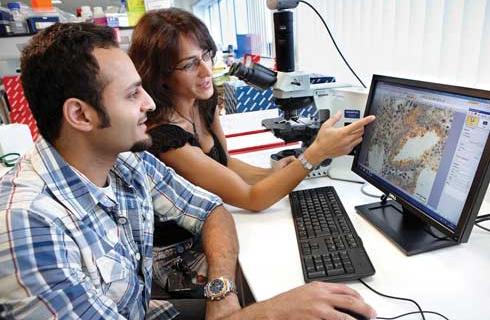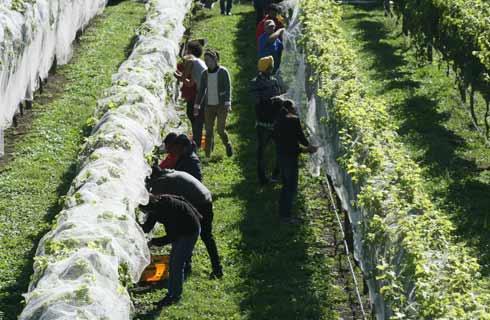国际学生入学条件
Completed Graduate Admissions Application
Application fee
A GPA of 3.0 or better in the last four semesters or approximately 60 semester credits (or the equivalent in quarter credits) of work as an undergraduate;
One transcript for each post-secondary institution attended
Residency Declaration Form
International students only
Official TOEFL or IELTS exam scores (See International Students > English Proficiency.)
TOEFL: MS student: 550, 213, or 80 for paper-based, computer-based, or internet-based examinations
ILTS: Minimum score is 6.00 for the overall band test results.
展开
IDP—雅思考试联合主办方

雅思考试总分
6.0
- 雅思总分:6
- 托福网考总分:80
- 托福笔试总分:550
- 其他语言考试:NA
CRICOS代码:
申请截止日期: 请与IDP联系 以获取详细信息。
课程简介
The NREM graduate program brings together natural and social scientists to offer an integrative and inter-disciplinary program to understand and manage tropical and sub-tropical terrestrial and aquatic ecosystems. Emphasis is placed on island settings and their relevance to managing land- and sea-scapes. The NREM curriculum emphasizes the application of physical, biological, and social sciences to the conservation and sustainable management of natural, environmental, and economic resources.<br>Students are expected to acquire quantitative reasoning, critical thinking, and advanced skills that enable them to solve contemporary resource use and environmental problems and to assist in sound policy development and implementation. NREM graduates are expected to serve as professional leaders in natural resources and environmental management and policy, academic teaching and research, and applied research and extension in educational and governmental institutions, international, national and state technical assistance and policy agencies, agricultural and forestry industries, consulting firms, and private nonprofit and non-governmental organizations.<br>NREM issues are attracting considerable attention, as well as growing donor interest, especially in the Asia/Pacific and tropical and subtropical regions. Graduate training, therefore, features collaboration with national and international institutions to foster programs that provide students with opportunities to learn about the ways in which people from other countries and cultures manage their natural resources and interact with their environments.<br>To underscore its integrative and global nature, the NREM Graduate Program features strong collaboration with other academic departments within and outside of the College of Tropical Agriculture and Human Resources (CTAHR), as well as collaborating institutions in and outside of Hawaii. In addition, Cooperating and Affiliate Graduate Faculty complement and supplement NREM's expertise.<br>NREM Graduate Student Learning Outcomes (SLO's): <br>1. Students demonstrate knowledge of social and ecological principles, and interdisciplinary aspects of natural resource and environmental management issues<br>2. Students can analyze and address natural resource and environmental management problems by using appropriate methods from social and/or natural science disciplines<br>3. Students communicate effectively, both orally and in writing, to diverse audiences including professionals, resource managers, local communities and policy makers<br>4. Students can:<br>a. Conduct scientific research of professional quality in their specialization area (M.S. Plan A)<br>b. Conduct a capstone project of professional quality to acquire practical experience by applying NREM knowledge (M.S. Plan B, M.S. Plan C, MEM)<br>5. Students can function as professionals in their specialization area by demonstrating responsible and ethical conduct, effective collaboration, informed decision making, and life-long learning
展开







 预科
预科 奖学金
奖学金 实习机会
实习机会 在校学习
在校学习 跨境学习
跨境学习 校园授课-线上开始
校园授课-线上开始 在线/远程学习
在线/远程学习













 卡莫森学院
卡莫森学院

 尼亚加拉学院
尼亚加拉学院

 麦吉尔大学继续教育学院
麦吉尔大学继续教育学院

 麦吉尔大学继续教育学院
麦吉尔大学继续教育学院

 麦吉尔大学继续教育学院
麦吉尔大学继续教育学院

 西蒙菲莎大学
西蒙菲莎大学









 美国
美国
